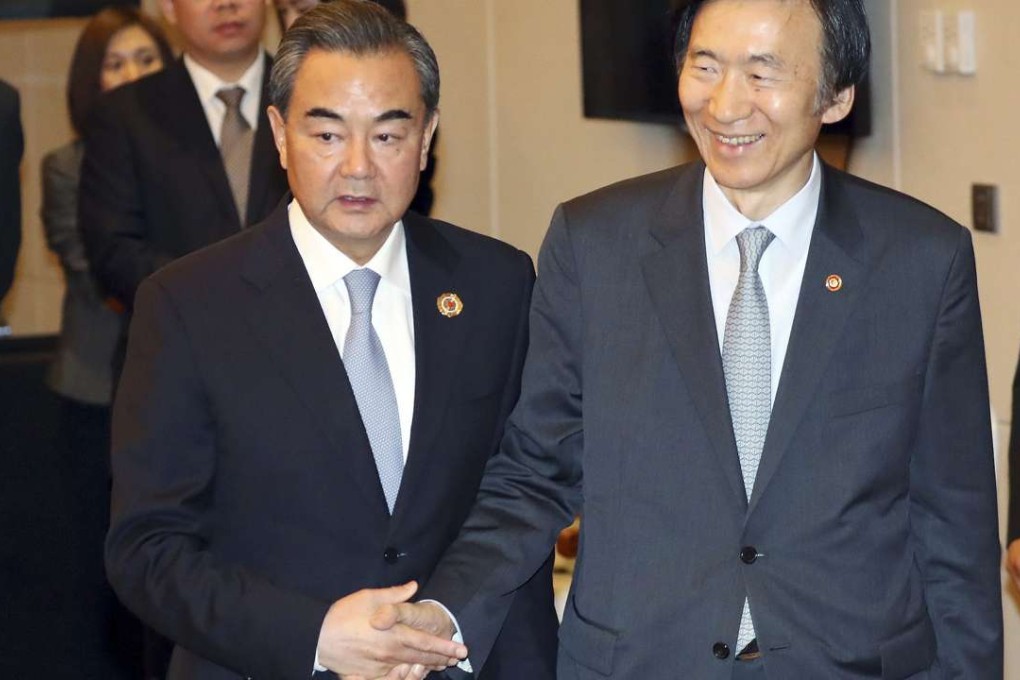China faces ‘diplomatic dilemma’ in Korean peninsula as Seoul deploys US anti-missile defence system

Plans by South Korea to deploy a powerful US anti-missile system in the Korean peninsula will create a diplomatic dilemma for China – especially when it is faced with an increasingly bellicose North Korea, experts say.
China’s Foreign Minister Wang Yi – who spent a lot of time at the weekend’s Association of Southeast Asian Nations foreign minister’s forum in Laos trying to limit the damage to Beijing over the international tribunal ruling on South China Sea – held bilateral meetings on the sidelines with his counterparts from both North Korea and South Korea.
Beijing would be wise to review carefully its approach to the two Koreas and consider which of the two Koreas is more prepared to be a friendly, cooperative neighbour and a force for stability
Wang reportedly told his South Korean counterpart, Yun Byung-se, that the deployment was not simply a technical issue but also a strategic matter, and would have a negative impact on the situation in the peninsular, China’s foreign ministry said in a statement published on its website.
The move would also affect regional stability and relations between Beijing and Seoul, Wang was reported as saying.
Wang also met North Korea’s Foreign Minister Ri Yong-ho, and assured him that Beijing and Pyongyang remained traditional friends and that China was committed to resolving problems in the Korean peninsula through discussions.
South Korea and the United States announced this month that they would deploy the Terminal High Altitude Area Defence (THAAD) missile system – a move strong opposed by China, which has deep security concerns that information about its military facilities could be easily penetrated by the weaponry’s radar system.
